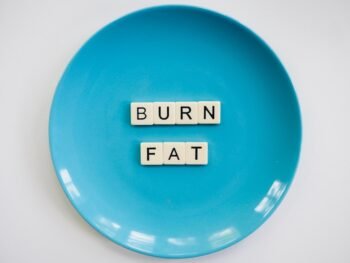Losing weight is a common goal for many people, but it is important to set realistic weight loss goals and understand the science behind weight loss. Setting achievable goals is crucial because it allows you to track your progress and stay motivated throughout your weight loss journey. Understanding the science of weight loss, including the basics of calories in vs. calories out and the role of metabolism, can help you make informed decisions about your diet and exercise routine. In this article, we will explore these topics in depth and provide tips for setting realistic weight loss goals, overcoming obstacles, and staying motivated.
Key Takeaways
- Setting realistic weight loss goals is important for long-term success.
- Understanding the science of weight loss can help you make informed decisions about your diet and exercise routine.
- Factors affecting weight loss include genetics, age, and lifestyle habits.
- Diet plays a crucial role in losing 40 pounds, and it's important to focus on whole, nutrient-dense foods.
- Exercise is also important for losing 40 pounds, and a combination of cardio and strength training can be effective.
- Staying motivated during weight loss can be challenging, but setting small goals and tracking progress can help.
- The benefits of losing 40 pounds include improved health, increased energy, and improved self-confidence.
- Common mistakes to avoid during weight loss include crash dieting and relying too heavily on supplements or fad diets.
- Seeking professional help, such as a registered dietitian or personal trainer, can provide valuable guidance and support.
- Celebrating weight loss successes and maintaining a healthy lifestyle are key to long-term weight management.
Setting Realistic Weight Loss Goals
Setting realistic weight loss goals is essential for long-term success. It is important to remember that weight loss is a gradual process and that losing 40 pounds in a healthy and sustainable way takes time. Aim for a weight loss of 1-2 pounds per week, as this is considered a safe and achievable rate. Setting smaller, incremental goals can also help you stay motivated and focused.
When setting your weight loss goals, it is important to consider factors such as your current weight, body composition, and overall health. Consult with a healthcare professional or registered dietitian to determine what a healthy weight range is for you. They can also help you set realistic goals based on your individual circumstances.
Understanding the Science of Weight Loss
To effectively lose weight, it is important to understand the science behind it. Weight loss occurs when you consume fewer calories than you burn, creating a calorie deficit. This can be achieved through a combination of diet and exercise.
Calories in vs. calories out is the basic principle of weight loss. To lose weight, you need to consume fewer calories than your body needs to maintain its current weight. This can be done by reducing portion sizes, choosing nutrient-dense foods, and avoiding high-calorie processed foods.
Metabolism also plays a role in weight loss. Your metabolism is the process by which your body converts food into energy. Some people have a naturally faster metabolism, which means they burn calories more quickly. However, there are ways to boost your metabolism, such as through regular exercise and strength training.
Factors Affecting Weight Loss
While the basic principle of weight loss is calories in vs. calories out, there are other factors that can affect your ability to lose weight. Genetics, for example, can play a role in how your body processes and stores fat. Some people may have a genetic predisposition to obesity or a slower metabolism.
Medical conditions can also affect weight loss. Conditions such as hypothyroidism or polycystic ovary syndrome (PCOS) can make it more difficult to lose weight. If you suspect that a medical condition is hindering your weight loss efforts, it is important to consult with a healthcare professional for proper diagnosis and treatment.
Overcoming these obstacles requires patience and persistence. It may be necessary to make adjustments to your diet and exercise routine or seek professional help to develop a personalized plan that takes into account your individual circumstances.
The Role of Diet in Losing 40 Pounds
Diet plays a crucial role in weight loss. To lose 40 pounds, it is important to create a healthy meal plan that is balanced and provides all the necessary nutrients while creating a calorie deficit.
Aim to include a variety of fruits, vegetables, whole grains, lean proteins, and healthy fats in your diet. These foods are nutrient-dense and will keep you feeling satisfied while providing essential vitamins and minerals.
Portion control is also important when trying to lose weight. Be mindful of portion sizes and avoid eating large quantities of high-calorie foods. Consider using smaller plates or bowls to help control portion sizes.
Meal planning and preparation can also be helpful in achieving your weight loss goals. Plan your meals ahead of time and prepare them in advance to avoid making impulsive food choices or relying on unhealthy convenience foods.
The Importance of Exercise in Losing 40 Pounds

Exercise is an important component of any weight loss plan. It not only helps burn calories but also improves overall health and well-being. Aim for at least 150 minutes of moderate-intensity aerobic exercise per week, along with strength training exercises at least twice a week.
Cardiovascular exercises such as walking, jogging, cycling, or swimming can help burn calories and improve cardiovascular health. Strength training exercises, such as lifting weights or using resistance bands, can help build lean muscle mass and increase metabolism.
Incorporating exercise into your daily routine can be challenging, but it is important to find activities that you enjoy and that fit into your schedule. Consider joining a gym, taking fitness classes, or finding a workout buddy to help keep you motivated.
Tips for Staying Motivated During Weight Loss
Staying motivated throughout your weight loss journey can be challenging, but there are strategies you can use to stay on track. One common challenge is hitting a plateau, where weight loss stalls despite your efforts. This is normal and can be overcome by making adjustments to your diet and exercise routine.
Another challenge is dealing with cravings and temptations. It is important to find healthy alternatives to satisfy cravings and avoid keeping unhealthy foods in your home. Planning ahead and having healthy snacks on hand can help prevent impulsive food choices.
Tracking your progress can also help keep you motivated. Keep a food diary or use a mobile app to track your calorie intake and exercise. Seeing your progress over time can be motivating and help you stay focused on your goals.
The Benefits of Losing 40 Pounds
Losing 40 pounds can have numerous physical and mental benefits. Physically, losing weight can reduce the risk of chronic diseases such as heart disease, diabetes, and certain types of cancer. It can also improve mobility, reduce joint pain, and increase energy levels.
Mentally, losing weight can boost self-confidence and improve body image. It can also improve mood and reduce symptoms of depression and anxiety. Losing weight can also improve sleep quality and overall quality of life.
It is important to celebrate your weight loss successes along the way. Reward yourself for reaching milestones and acknowledge the hard work and dedication it takes to achieve your goals. This will help keep you motivated and focused on maintaining a healthy lifestyle.
Common Mistakes to Avoid During Weight Loss
There are common mistakes that people make during weight loss that can hinder progress. One mistake is relying on fad diets or quick fixes that promise rapid weight loss. These diets are often unsustainable and can lead to nutrient deficiencies or rebound weight gain.
Another mistake is focusing solely on the number on the scale. While weight is an important measure of progress, it is not the only one. Pay attention to other indicators of health, such as how your clothes fit, improvements in strength and endurance, and changes in body composition.
It is also important to avoid comparing yourself to others. Everyone's weight loss journey is unique, and what works for one person may not work for another. Focus on your own progress and celebrate your individual successes.
The Importance of Seeking Professional Help
Seeking professional help can be beneficial when trying to lose weight. A registered dietitian can provide personalized nutrition advice and help you develop a meal plan that meets your individual needs. They can also help you navigate any dietary restrictions or medical conditions that may affect your weight loss efforts.
A personal trainer or fitness professional can provide guidance on exercise routines and help you develop a workout plan that is safe and effective. They can also provide motivation and accountability throughout your weight loss journey.
If you are struggling with emotional eating or have a history of disordered eating, it may be beneficial to seek the help of a therapist or counselor. They can provide support and guidance as you navigate the emotional aspects of weight loss.
Celebrating Weight Loss Successes and Maintaining a Healthy Lifestyle
Celebrating your weight loss successes is important for maintaining motivation and staying on track. Reward yourself for reaching milestones, whether it's treating yourself to a new outfit, booking a spa day, or planning a fun activity with friends or family.
Once you have reached your weight loss goals, it is important to focus on maintaining a healthy lifestyle. This includes continuing to eat a balanced diet, exercising regularly, and practicing self-care. It can be helpful to set new goals, such as improving fitness levels or trying new activities, to stay motivated and continue making progress.
Setting realistic weight loss goals and understanding the science behind weight loss are crucial for long-term success. It is important to set achievable goals, understand the basics of calories in vs. calories out, and consider factors that may affect weight loss. A healthy diet and regular exercise are key components of any weight loss plan, and staying motivated throughout the journey is essential. Celebrate your successes along the way and seek professional help if needed. Remember, losing 40 pounds is a significant achievement that can have numerous physical and mental benefits.
If you're interested in the world of martial arts and want to explore the art of submission, you should check out this informative article on "Unlocking the Secrets of BJJ: How to Master the Art of Submission." It delves into the techniques and strategies used in Brazilian Jiu-Jitsu, providing valuable insights for both beginners and experienced practitioners. Whether you're looking to improve your grappling skills or simply gain a deeper understanding of this martial art, this article is a must-read. Read more
FAQs
What is the average time it takes for a woman to lose 40 pounds?
The average time it takes for a woman to lose 40 pounds varies depending on factors such as age, starting weight, diet, and exercise routine.
What is a healthy rate of weight loss?
A healthy rate of weight loss is 1-2 pounds per week. Losing weight at a faster rate can be unhealthy and unsustainable.
What are some effective ways to lose weight?
Effective ways to lose weight include eating a balanced and nutritious diet, engaging in regular physical activity, getting enough sleep, and managing stress levels.
Is it possible to lose 40 pounds in a month?
Losing 40 pounds in a month is not a healthy or realistic goal. Rapid weight loss can lead to muscle loss, nutrient deficiencies, and other health problems.
What are some common challenges women face when trying to lose weight?
Common challenges women face when trying to lose weight include emotional eating, lack of time for exercise, hormonal imbalances, and unrealistic expectations.
Should I consult a healthcare professional before starting a weight loss program?
It is recommended to consult a healthcare professional before starting a weight loss program, especially if you have any underlying health conditions or are taking medication. They can provide personalized advice and guidance.










